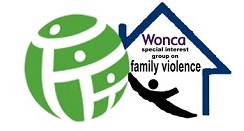16 Days of Activism Against Gender-Based Violence
 WONCA SIGFV Statement
WONCA SIGFV Statement
Statement by WONCA Special Interest Group on Family Violence (SIGFV)
On the Conclusion of the 16 Days of Activism Against Gender-Based Violence
As we mark the conclusion of the 16 Days of Activism Against Gender-Based Violence,
WONCA SIGFV reaffirms its unwavering commitment to denouncing all forms of violence and
abuse against women, including those directed toward female healthcare workers. These
acts not only harm individuals but also pose a significant public health problem worldwide,
undermining the equality and justice essential for a healthy society.
The healthcare sector faces its own challenges in addressing violence. Female healthcare
professionals frequently encounter workplace harassment, sexual harassment, discrimination,
and abuse throughout their careers—from their undergraduate studies, through postgraduate
training, and into professional practice. These issues, often perpetuated by structural power
imbalances, remain hidden and silenced, contributing to profound personal and professional
consequences.
Gender-based violence in healthcare is not an isolated phenomenon but a structural issue requiring
systemic action. WONCA SIGFV emphasizes the critical role of healthcare systems and professionals
in addressing this global public health crisis. Early identification of violence, providing safe
spaces for disclosure, and connecting survivors to resources are essential roles of healthcare
professionals. Furthermore, through education and advocacy, healthcare systems play a pivotal role
in prevention and promoting community awareness.
To effectively combat violence against women, a strong focus on community involvement is essential.
Healthcare professionals, especially within primary care, have a unique opportunity to engage with
communities, fostering environments where violence prevention becomes a shared responsibility.
Collaborating with community leaders, schools, and local organizations, the healthcare system can
promote education, awareness, and prevention strategies that resonate at the grassroots level.
Building trust and establishing partnerships with community members can amplify efforts to address
the social norms and systemic inequalities that perpetuate violence, creating sustainable solutions.
To address these challenges effectively, WONCA SIGFV calls for:
- Comprehensive, gender-sensitive education and training to equip healthcare professionals with the skills to identify and manage cases of violence and abuse.
- Structural and institutional support to ensure adequate time, resources, and safe environments to address these issues.
- Commitment to research on the causes and consequences of violence, particularly its gendered dimensions in healthcare settings. Evaluative research is also needed to generate evidence on the effectiveness of different interventions.
- Development of policies that prioritize safety, equality, access, and response to justice for victims of violence.
- Active inclusion of survivors' voices, ensuring that their experiences guide systemic reforms.
WONCA SIGFV emphasizes that violence against women is not just a personal issue—it is a profound public health
concern that demands collective action. Healthcare systems and organizations must take a stand to address the
structural roots of this problem while providing care and support to those affected. Equally vital is the involvement
and support of scientific and professional organizations to advance these efforts effectively.
Let this statement serve as a call to action for all healthcare professionals to join the fight against violence,
fostering a global healthcare environment rooted in safety, equality, and justice for all.
Together, and in partnership with communities, we can create a healthier and more equitable future.
WONCA Special Interest Group on Family Violence
10 December 2024
Approved by the WONCA Executive 19 December 2024
Download the full statement as a PDF
Join SIGFV